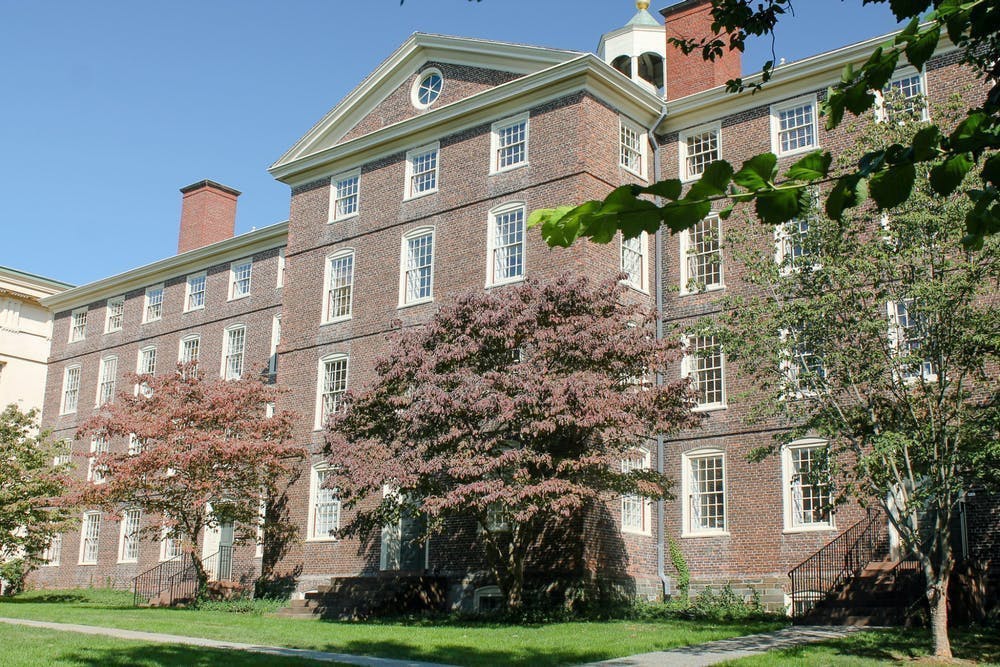The Corporation, the University’s highest governing body, approved a 4.75% increase for undergraduate tuition and fees for the 2023-24 academic year in its February meetings, according to a Feb. 13 University press release. The increase, which also applies to “most doctoral and … master’s degree programs,” is the largest since 2019.
For the last two years, the Corporation had approved 2.85% tuition increases, the lowest in the last decade, The Herald previously reported. This year, inflation was a “driving factor” in the increase, according to the release, which cited a 5.2% jump in costs for U.S. institutions of higher education.
Undergraduate tuition will increase from $62,680 to $65,656, and medical school tuition will increase by 3% from $67,268 to $69,286. Tuition for most doctoral and master’s programs will increase by 4.75% to $8,207 per course, though just over one-third of programs will see increases of 3.5% or less.
“With the external financial landscape shifting, the approved 2023-24 increase will provide a significant boost in revenue to support research, teaching and strategic initiatives, while positioning us to expand on our commitment to attracting and supporting students from a wide range of socioeconomic backgrounds,” Interim Provost Larry Larson said in the press release.
The tuition increases will be accompanied by a projected 9% increase in undergraduate financial aid equal to roughly $17 million, according to the press release, although the Corporation will not finalize the updated financial aid budget until its May meeting.
The tuition and salary increases were made based on recommendations from the University Resources Committee, which comprises the current provost and a small number of faculty, administrators, staff and students.
Salary increase pool, dorm naming and other Corporation updates
The meetings resulted in a 4% salary increase pool — the percent increase in salary that faculty and staff can receive for performance-based raises, promotions, equity adjustments and retention purposes — according to the press release. This pool is the second-largest in 12 years, after last year’s 4.25% increase pool.
“It remains essential that we sustain the University’s ability to compete for top talent and acknowledge the immense contributions of our dedicated employees in making Brown a world-class university,” Larson said in the release. “This year’s salary pool for both faculty and staff is fiscally responsible while ensuring the University’s capacity to remain an employer of choice in Providence, the state of Rhode Island and the greater region.”
In the meeting, the Corporation also approved the naming of the residence hall currently under construction at 250 Brook Street, according to a Feb. 13 Today@Brown announcement from President Christina Paxson P’19. The building will be named the Chen Family Hall in recognition of an anonymous gift to “help build, equip and maintain” the dorm.
Corporation members also reviewed the status of current research initiatives under development as part of the University’s Operational Plan for Investing in Research, which aims to increase institutional research output and visibility over the next five to seven years.
“There’s incredible potential for amazing research that can really have a big impact on people’s lives,” Larson told The Herald.
Administrators also discussed proposals for expanding off-campus learning options, including adding courses to the Summer Session and Winter Session terms and off-campus programs such as Brown in Washington, Larson said. That expansion would allow a wider range of students to take “more creative and unusual paths,” he said.
Spearheaded by Dean of the College Rashid Zia ’01, expanded course offerings will make it easier for students to fulfill their concentration requirements while exploring off-campus opportunities at the same time. “We want to actually encourage them in these unusual paths because we think they really add to their education,” Larson added.
University administrators are also preparing for multiple possibilities surrounding affirmative action, which faces an uncertain future with two upcoming Supreme Court decisions, according to Paxson’s Today@Brown announcement. At the meeting, the Corporation and Paxson established that “the Supreme Court’s decision will not change Brown’s commitment to diversity, which is central to preparing our students to thrive in the complex and changing settings they’ll encounter after they graduate,” Paxson wrote.
Since beginning his role as interim provost, Larson has been engaged in meetings with a group formed by former Provost Richard Locke P’18 to discuss potential options for University admissions policies, he said. “We’re preparing for a range of outcomes from the Court,” he said. “Our commitment … to recruiting students from a wide range of experiences, backgrounds, interests and perspectives — we’re absolutely unshakable on this.”
Charlie Clynes was the managing editor of digital content on The Herald's 134th Editorial Board. Previously, he covered University Hall and the Graduate Labor Organization as a University News editor.





